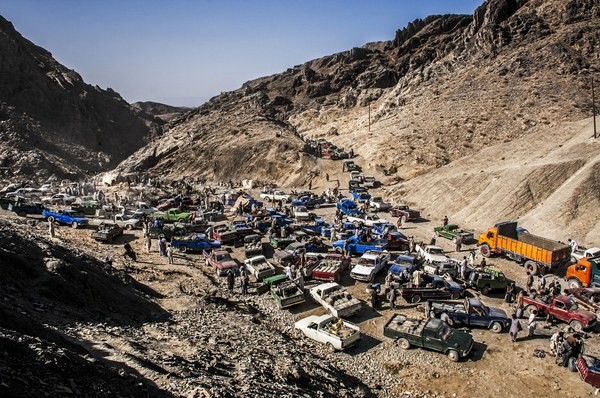In a statement issued on Monday, he praised the PM’s efforts to curb the menace of petrol smuggling and stressed that concrete steps should also be taken to eradicate the smuggling of imported food items. The statement further said that the entire business community not only appreciated the government’s efforts to put an end to petrol smuggling but also stood by it.
Read More: Why have private petrol pumps created artificial petrol shortage?
Since quite some time, the government has been wanting to put a stop to the widespread smuggling of low quality, Iranian oil into the country via Balochistan. The estimated loss due to the illegal selling of petroleum products to the national exchequer, is in the range of Rs100 billion to Rs150bn per annum. To eradicate this problem, Prime Minister Imran Khan has approved a comprehensive action plan against 2,094 illegal petrol retail outlets in Punjab, Khyber Pakhtunkhwa, and Sindh. The government has decided to focus on a customs-led crackdown in these three provinces, however, in Balochistan, only the supply lines of the smuggled oil would be cut off in the first phase. Action against the illegal outlets in Balochistan would be taken afterwards. In coordination with the Ministry of Foreign Affairs, the Petroleum Ministry would also explore the likelihood of importing oil and high-speed diesel from Iran to put an end to smuggling.
Read More: Twelve oil importers responsible for artificial oil storage: FIA
Crackdown Against Petrol Smuggling Intensifies
The illegal smuggling of petrol is causing Rs150bn annual losses to the national kitty. Punjab is currently home to the highest number of illegal retail outlets -1317, followed by 343 in KPK, 336 in Sindh and 98 in Islamabad. Moreover, there are 68 illegal outlets in Karachi which are selling smuggled petrol, followed by 55 in Peshawar. Until now, no illegal retail outlets have been reported in Lahore.
The government has divided the action plan against fuel smuggling in two phases. In the first phase, action would be taken against the illegal outlets in Kpk, Sindh and Punjab which have already been geo mapped by the customs. The supply routes of smuggled POL products from Balochistan to the rest of the country would also be choked off. Any owner or manager of a petrol station who fails to present the oil marketing company authorization and CIE’s License on Form-K of the Department of Explosives would have his outlet declared illegal. In case, the owner fails to provide the documents in 7 days, an FIR would be launched against him. All major supply routes which are used to smuggle petrol from Balochistan to the rest of the country would be monitored and choked.
Read More: Mari Petroleum explores 836km area generating jobs for locals
In the second phase, the government is going to map the POL requirement of Balochistan and work towards providing legal retail outlets in order to replace the shortfall of smuggled oil. Moreover, a strategy would be devised to curb fuel smuggling at the international border of Balochistan.
Read More: Currency devaluation forces government to increase petroleum prices
Though this plan looks good on paper, it’s implementation would be laden with difficulties and roadblocks. For this action plan to succeed, the government first needs to secure the long border with Iran to close up the illegal trade routes. The oil marketing companies (OMC) would also need to be encouraged to expand their retail networks across the sparingly populated Balochistan Province. The OMCs are, however, reluctant to do so due to low demand, precarious security conditions and high freight cost. The illegal smuggling of petrol in tanks and jerry cans in full view of the border security forces indicates that it is backed by an extremely powerful mafia. The government, therefore, needs to target this cabal first if it wants to combat the scourge of smuggling.














